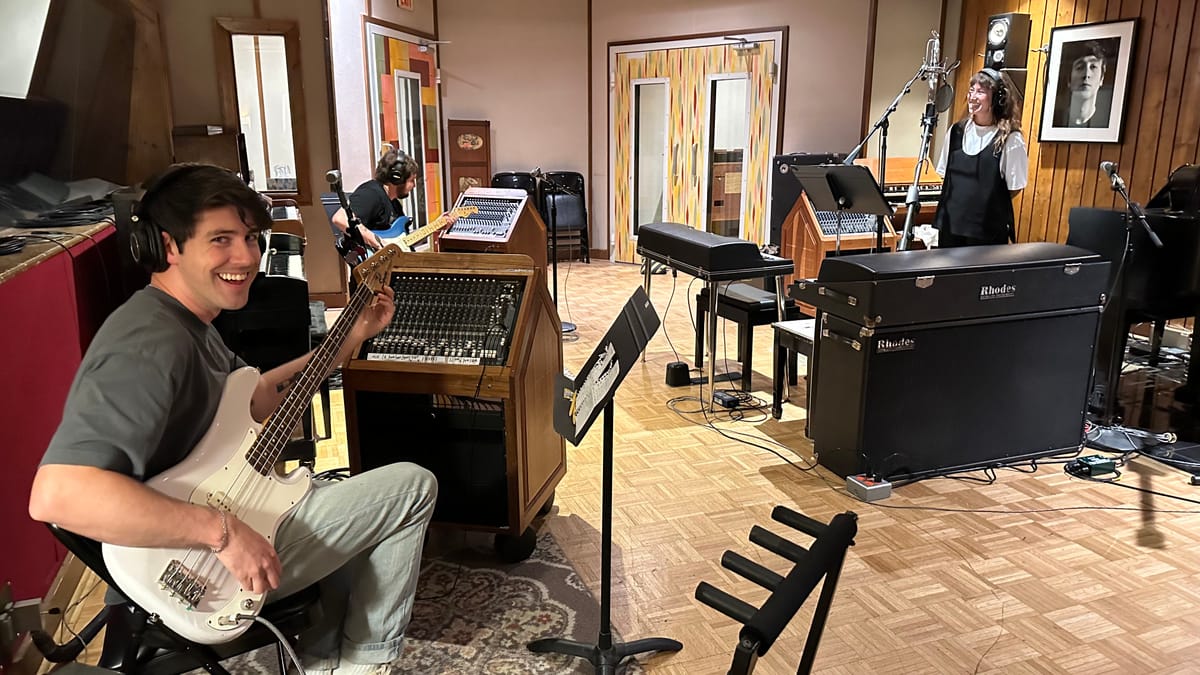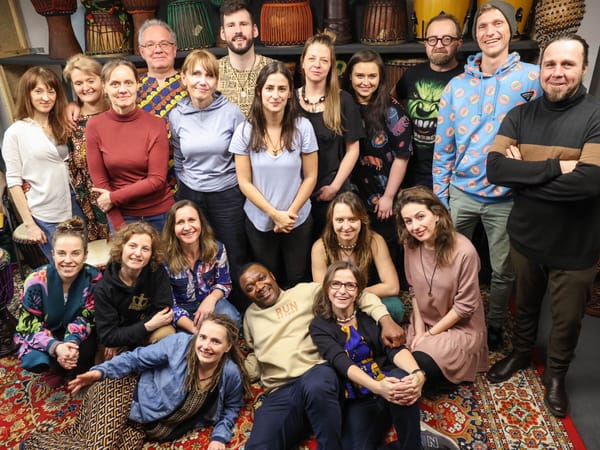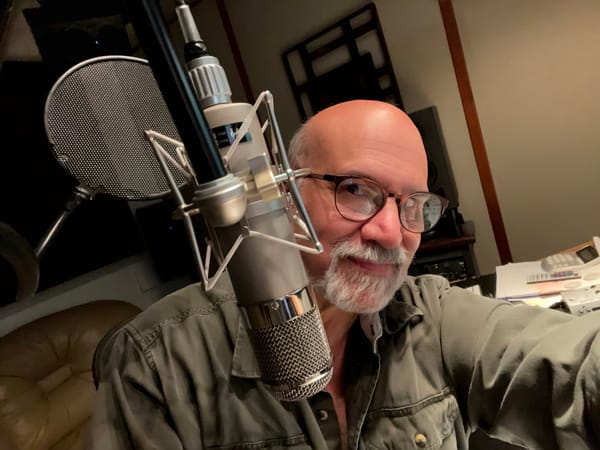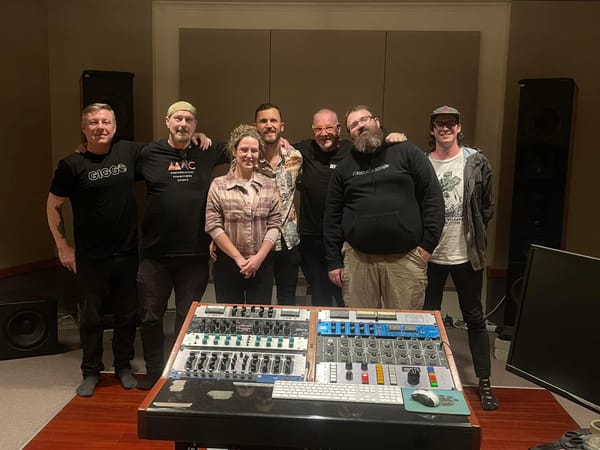Music Maker Mindset #2 | Strike a Chord | How Aretha’s Confidence Can Tune Up Your Music

Strike a Chord: How Aretha’s Confidence Can Tune Up Your Music
Why believing in your sound is the key to unlocking your musical potential
by Rich Steve Beck - PMFC Global Editor, Industry Networker and Mastering Engineer
The Girl Who Owned Her Voice
Aretha Franklin wasn’t always the Queen of Soul, belting out tunes like she owned the world. Back in her early days, she was just a kid in Detroit, singing gospel in her dad’s church, letting her voice ripple through the pews. She didn’t care if anyone else had sung those hymns before—didn’t matter one bit. “I’d sing and feel it for my own joy,” she’d later hint at, looking back on those simple times. It wasn’t about proving anything; it was about the sheer buzz of letting her sound loose.
Years on, when the music game got tough—record deals, critics, the lot—she wondered if that fearless kid could show her the way again. What if she stopped worrying about what the bigwigs thought and just sang like it was hers to own? “I got this new attitude,” she reckoned. “Be your own artist, and always be confident in what you’re doing. If you’re not going to be confident, you might as well not be doing it.” No faffing about, no second-guessing—just pure, unshakeable belief in her voice.
It started with a song. One day, she sat at the piano, messing with a little melody—nothing fancy, just something that felt right. The label blokes raised an eyebrow. “What’s the point of that?” they’d ask, scratching their heads. “No point at all,” she’d fire back with a grin. “I’m just singing it for the love of it.” And that was Aretha—bold as brass, doing her thing because it lit her up.
From a Hunch to a Hit
Aretha didn’t stop at that little tune. The more she mucked about with it, the more it grew on her. She’d tweak a note here, stretch a phrase there, letting her gut lead the way. Soon, she was wondering if that raw, gospel edge could mix with something soulful, something fresh. Could it turn into a belter like “Respect” or “Natural Woman”? “Before I knew it,” she’d say, “I was playing—working, really—with the same old passion I’d always had.” What kicked off as a lark became the stuff of legend, all because she trusted herself to belt it out.
For us musos, there’s a cracking lesson in that. Picture Aretha at her piano, not fretting over charts or reviews, just loving the sound she made. “The real fun of life,” Richard Feynman once said about his own playful discoveries, “is this playing around.” Aretha lived that too—when she let confidence take the wheel, she didn’t just sing, she soared. That’s the spark we can nick from her: believing in your music like it’s the only thing that matters.
When Confidence Makes the Tune
There’s a bit of science to back up Aretha’s vibe, too. Barbara Fredrickson, a brainy sort, found that feeling good—like Aretha did when she sang her heart out—widens your mind. She did this daft test, stressing folks out with a fake speech gig, then showing some of them cheerful clips. The ones who got the happy stuff chilled out faster, their heads opening up to new ideas. For musicians, that’s gold. When you’re confident, you’re not stuck on “Will they like it?”—you’re dreaming up wild riffs and bold mixes.
Aretha knew it in her bones. She didn’t just sing to please; she sang to own it. “Be your own artist,” she’d say, and that gutsy belief let her take risks—turning Otis Redding’s “Respect” into her anthem, no apologies. Bob Marley got it too: “None but ourselves can free our minds.” When Aretha leaned into that, she didn’t just make music—she made history. Confidence isn’t just swagger; it’s the juice that turns a hunch into a hit.
How to Nick Aretha’s Nerve for Your Music
Want to channel a bit of Aretha’s magic? Here’s how you can build that confidence muscle, straight from her playbook:
- Sing It Like You Mean It: Bash out your tunes every day—guitar, vocals, whatever. Aretha honed her voice till it was bulletproof; the more you do it, the more you’ll trust it.
- Start Small, Win Big: Don’t aim for Wembley off the bat. Nail a verse, finish a demo—little victories piled up gave Aretha her strut.
- Find Your Cheerleaders: Share your stuff with mates who’ll big you up, not knock you down. Aretha had her church crew; you need yours too.
- Hang with the Good Vibes: Stick with folks who lift you—bandmates, fans, whoever. Aretha thrived on support; it’ll steady your nerve.
- See It, Feel It: Before you play, picture it smashing—crowd roaring, sound perfect. Aretha owned every stage in her mind first.
- Fluff It and Move On: Mess up a note? So what—Aretha didn’t bin a song over one duff take. Learn and keep going.
- Shout About It: Finish something? Tell the world—or at least a pal. Aretha celebrated her wins, and it kept her fire burning.
These aren’t grand plans—just dead simple tricks to grow that Aretha-grade confidence, bit by bit.
Your Sound, Your Stage
Aretha’s story shows us confidence isn’t just a perk—it’s the heart of it all. That kid at the piano didn’t care about the odds; she sang because it was hers, and that belief turned her into a legend. “If you’re not going to be confident,” she’d say, “you might as well not be doing it.” She’s bang on—without it, you’re holding back the music only you can make.
Bob Marley put it best: “One good thing about music, when it hits you, you feel no pain.” Aretha lived that, trusting her voice to carry her through. So, grab your gear, own your sound, and let it rip. You’ve got a chord to strike—and it’s got your name on it.
Scribbled this on March 19, 2025
Thanks for reading! Our content is all free, we would love for you to subscribe so we can keep spreading the word on what we are creating on this awesome new space!
Join our community and come say hello to a worldwide network of 4000 audio engineers, producers and musicians




